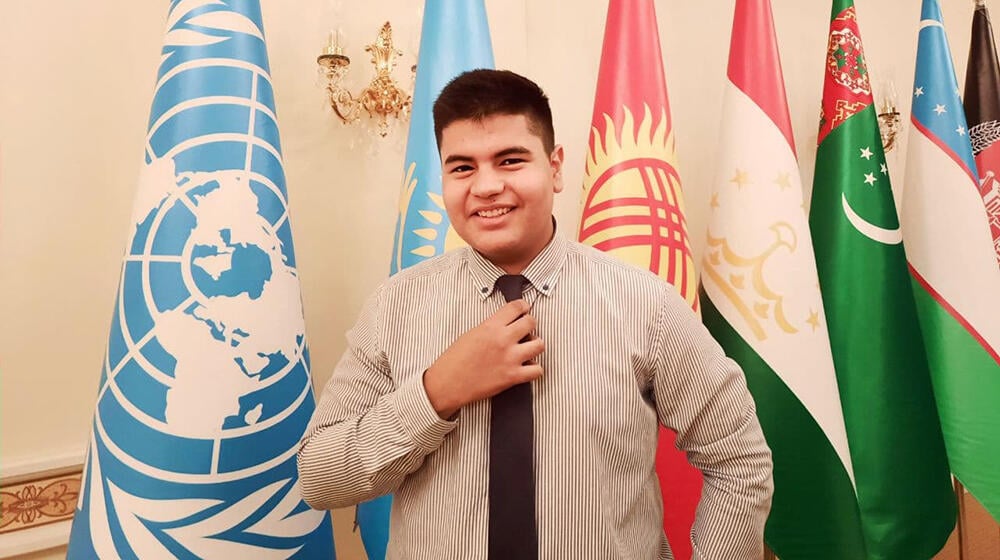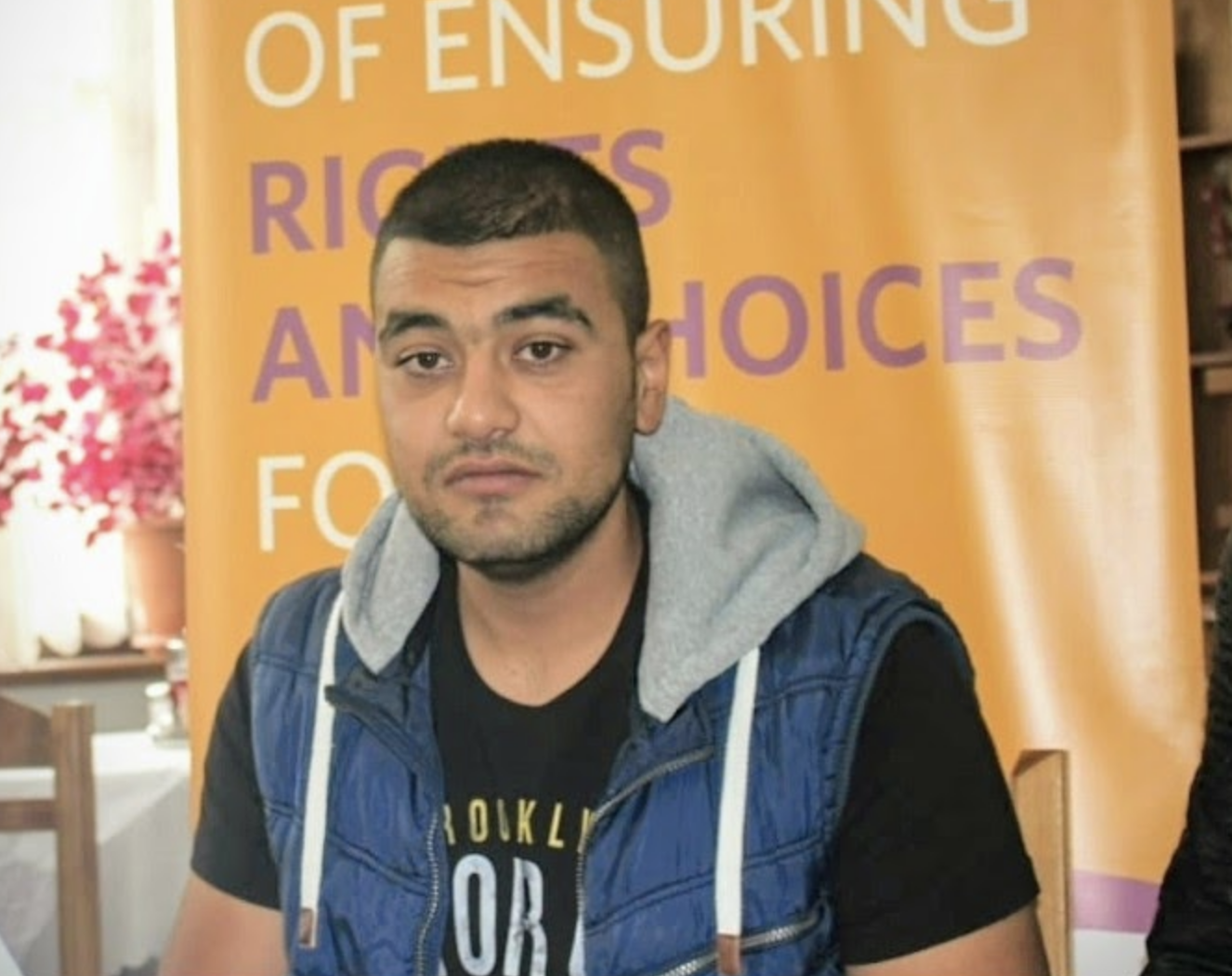
“Young people are a vital part of society - they will be the future.”
Ervin Sinani works as a Youth Peer Education Network (Y-PEER) educator in Albania. He trains people on sexual and reproductive health and rights and gender equality. Ervin is part of the Egyptian community in Albania, one of the more disadvantaged and often marginalized ethnic minorities in Albania, and it is with this community that he works. Initially, talking to young people about their sexual and reproductive health, including contraception, was a challenge. But Ervin saw his role as critical.
“Advising them on how to protect themselves [from sexually transmitted diseases and unwanted pregnancies] is all very important to me”
Y-PEER is a grouping of more than 500 non-profit organisations and governmental institutions. In Eastern Europe and Central Asia, Y-PEER unites more than 500 educators and the representatives of non-profits and government institutions across 11 countries.
Marjo Rabiaj is also a Y-Peer educator in Albania. He is 18 years old and he also works with marginalized groups. However, he faces slightly different challenges to Ervin.
“When I led my first training session on sexual and reproductive health and rights,” said Marjo. “All of the boys and young men thought I was trying to manipulate them.”
Over time Marjo conquered this challenge and he was able to see the wider benefits of his work.
“Unfortunately, this attitude is everywhere,” he said. “But this is not a challenge for me anymore. I am used to it now. And, when I say something about this topic, I see it as a duty to society.”
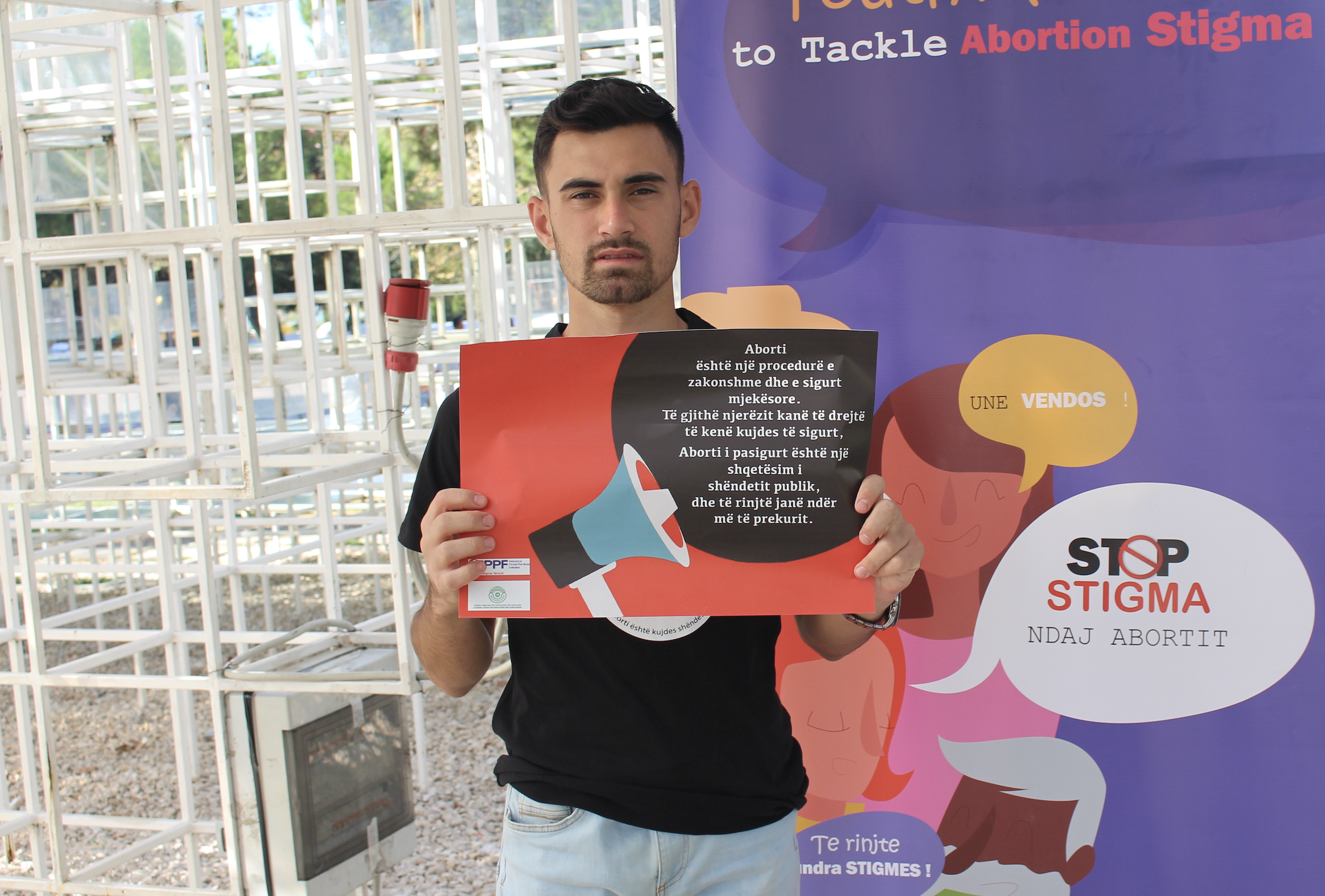
The training sessions help participants question stereotypes of masculinity, risk-taking behaviour and assist in the development of knowledge about gender equality, support for women’s rights, including reproductive rights.
Marjo Rabiaj tries to speak openly about these issues to boys and young men during his training sessions to raise awareness about gender equality and sexual and reproductive health and rights.
"Men are not as involved as women when it comes to gender equality and sexual and reproductive health and rights,” said Marjo. “As a male peer educator, my most important role is to engage with more men. I think all men have a positive role to play - not only in raising their voices and being an activist, but also in treating sexual and reproductive health and rights and gender equality as something that is important to speak about openly and unashamedly."
Y-PEER brings together young people who are active peer educators, trainers of trainers and youth advocates for adolescent sexual and reproductive health. Its core concept is the meaningful participation of young people in the governance, management, coordination, strategic planning, implementation and evaluation of the network’s activities.
Educators who work on gender equality and sexual and reproductive health and rights issues are motivated to volunteer for a variety of reasons. For some, like 18 year old Shukurgeldi Myradov, from Turkmenistan, it’s about making the world a better and fairer place for all, regardless of gender.
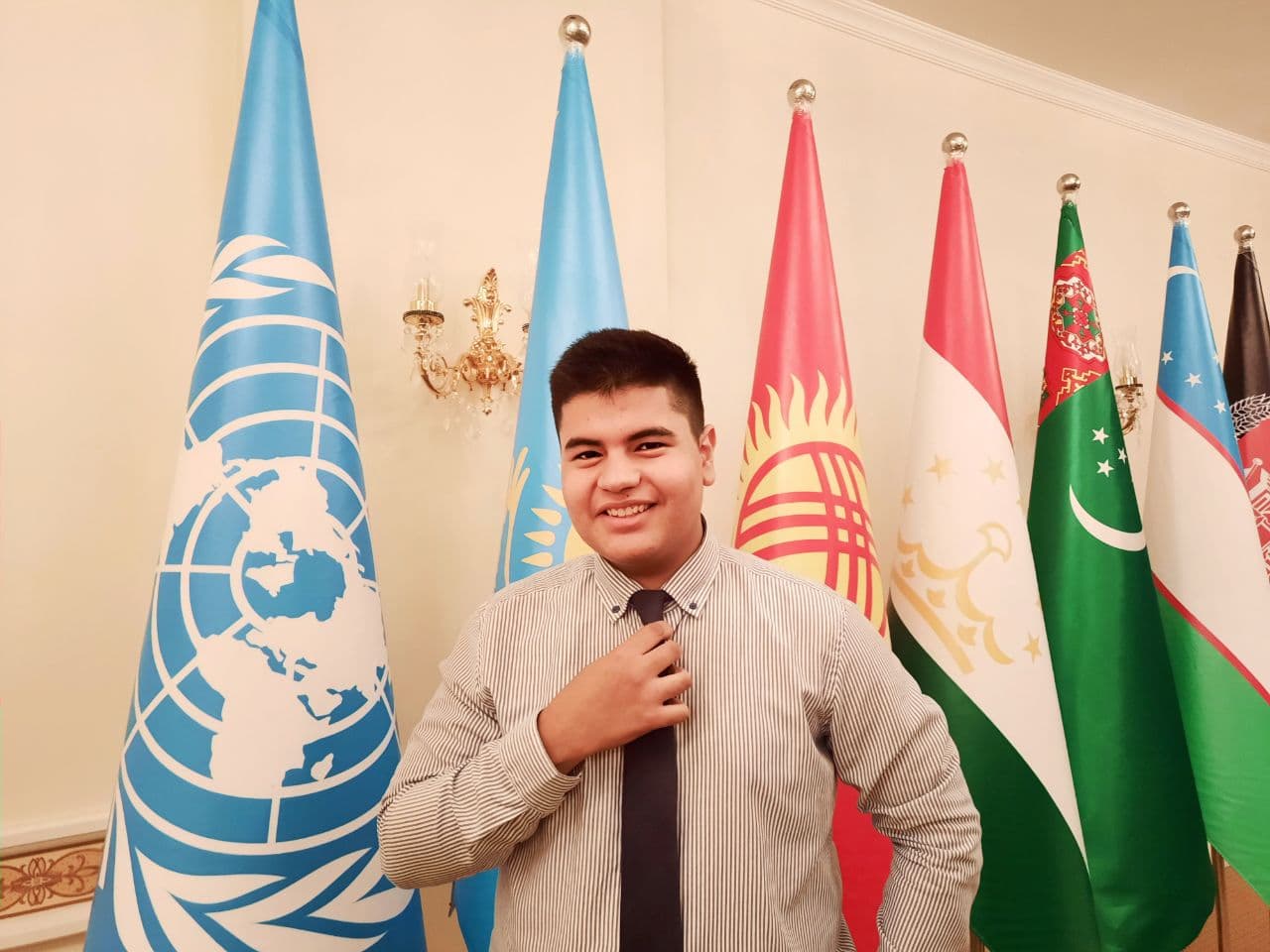
“I am motivated by people who are united by a common goal and a positive ambition to achieve great things,” said Shukurgeldi Myradov, 18, from Turkmenistan. “At the Olympic Games this year, 48.8% of Olympians were women - this is a record. I want to highlight that in order to light a flame that symbolizes victory over gender stereotypes and human rights violations. It is important that torches promoting gender equality and sexual and reproductive health and rights are carried by all of us on the planet. I aspire to be one of the billions who take responsibility for this role and make a contribution.”
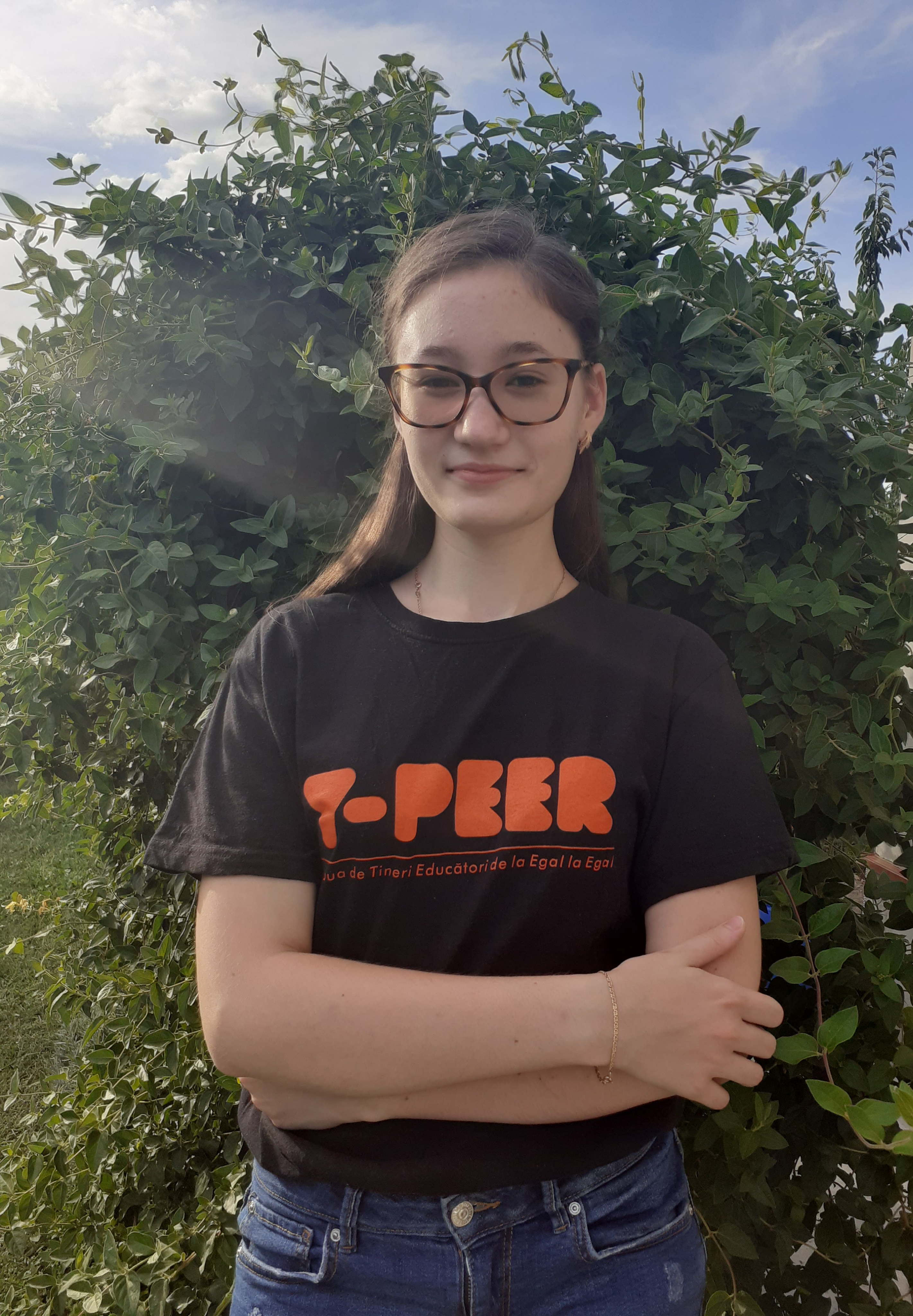
Others, like 18 year old Gabriela Doni from the Republic of Moldova, became an educator as she saw a need, and an opportunity, to change society through education.
“Issues around sexual and reproductive health and rights have a substantial impact on the mental health and physical well-being of teenagers,” said Gabriela. “When you consider the huge influence these issues have on the development of young people, it is worrying that they are not discussed more widely in society. I don't want to leave these subjects in the shadows. I wanted to shed light on them and help young people discuss them.”
Through her work as an educator, Gabriela started to see problems and solutions more clearly.
"I have become more aware that in order for the topics to be understood and applied in real life, it is vital that men are clear about how important it is to fully comprehend the roots of the problems," she said.
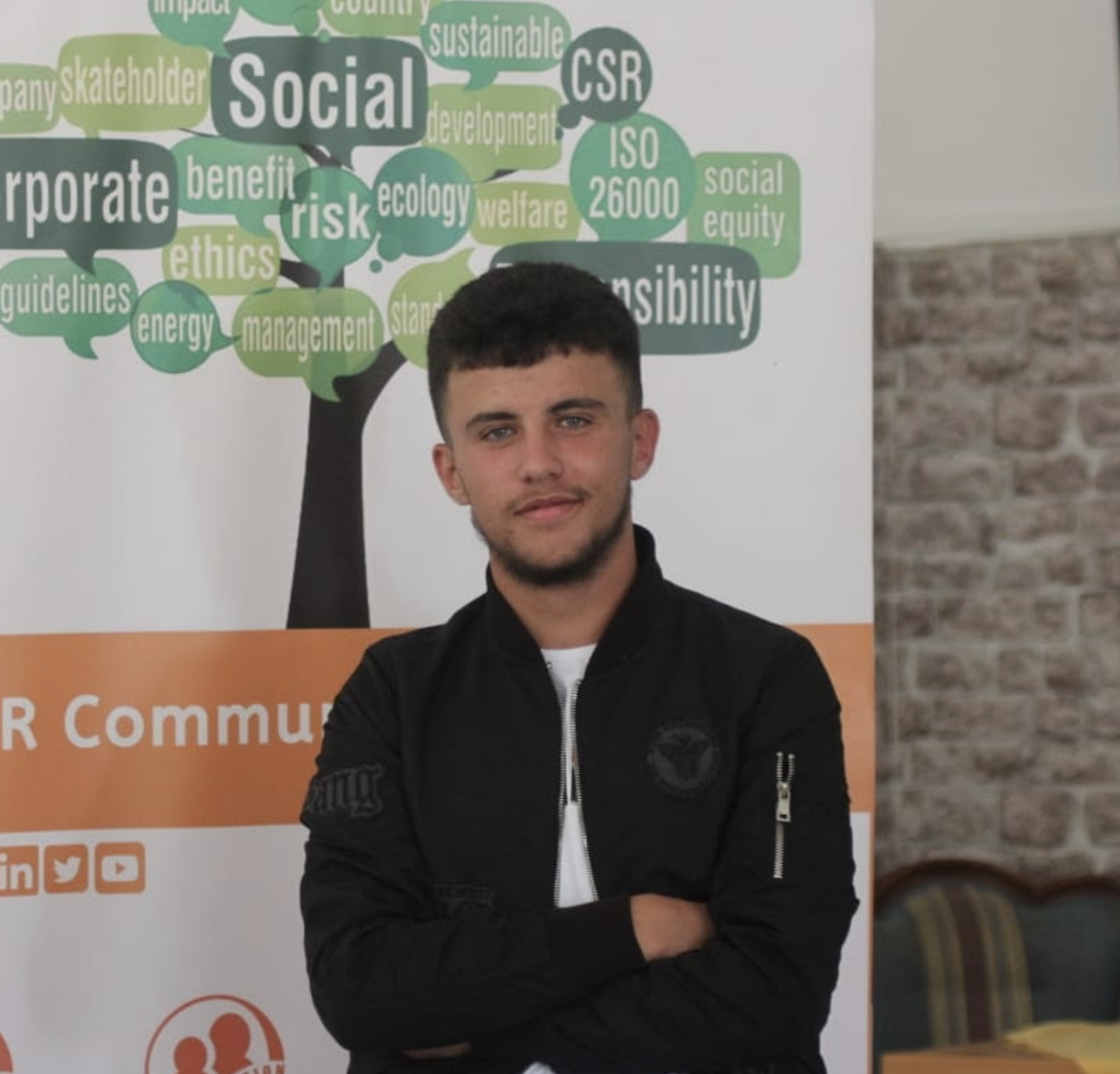
Another Albanian Y-PEER educator, Romeo Rabiaj, was pleased to see his peers and friends start to change their attitudes about sexual and reproductive health and rights as they realised how damaging stereotypes can be.
“I convinced the men I talk to that a lack of discussion of sexual and reproductive health and rights is part of the problem - that we must break these taboos,” said Romeo. “These days, more and more of my friends have changed their minds. Now, they find it stupid that they used to keep their problems to themselves. It’s a start.”
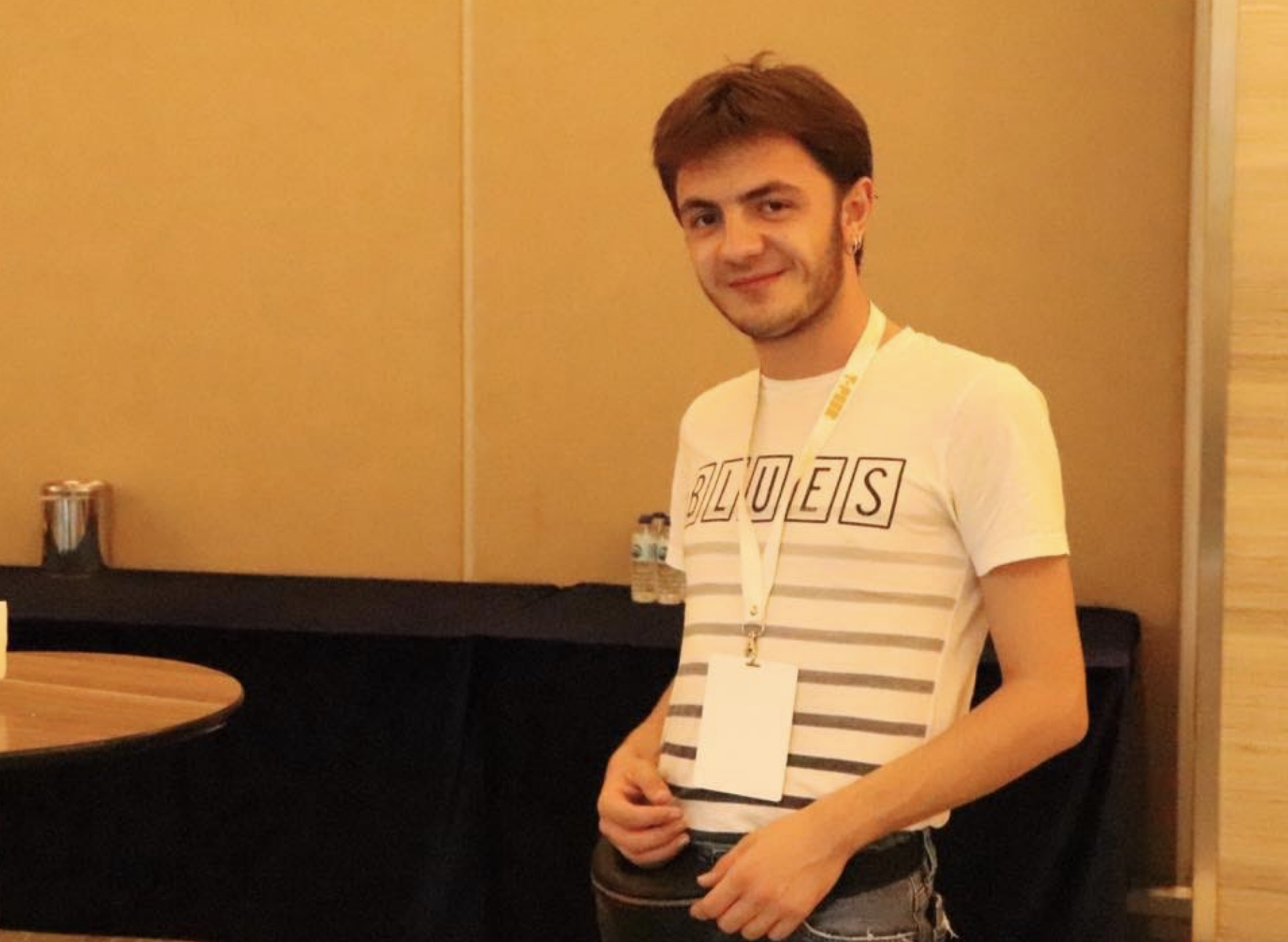
21 year old Berk Uslu, a Y-PEER educator from Turkey is happy to help smash outdated stereotypes.
“I think I have shown that it is possible to live without complying with outdated gender roles, that men can be themselves without adhering to certain stereotypes and that people will not reject them.”
For other Y-PEER educators, like 22 year old Aleksandar Miloshevikj from North Macedonia, the impact of their work is still sinking in—for them and their trainees.
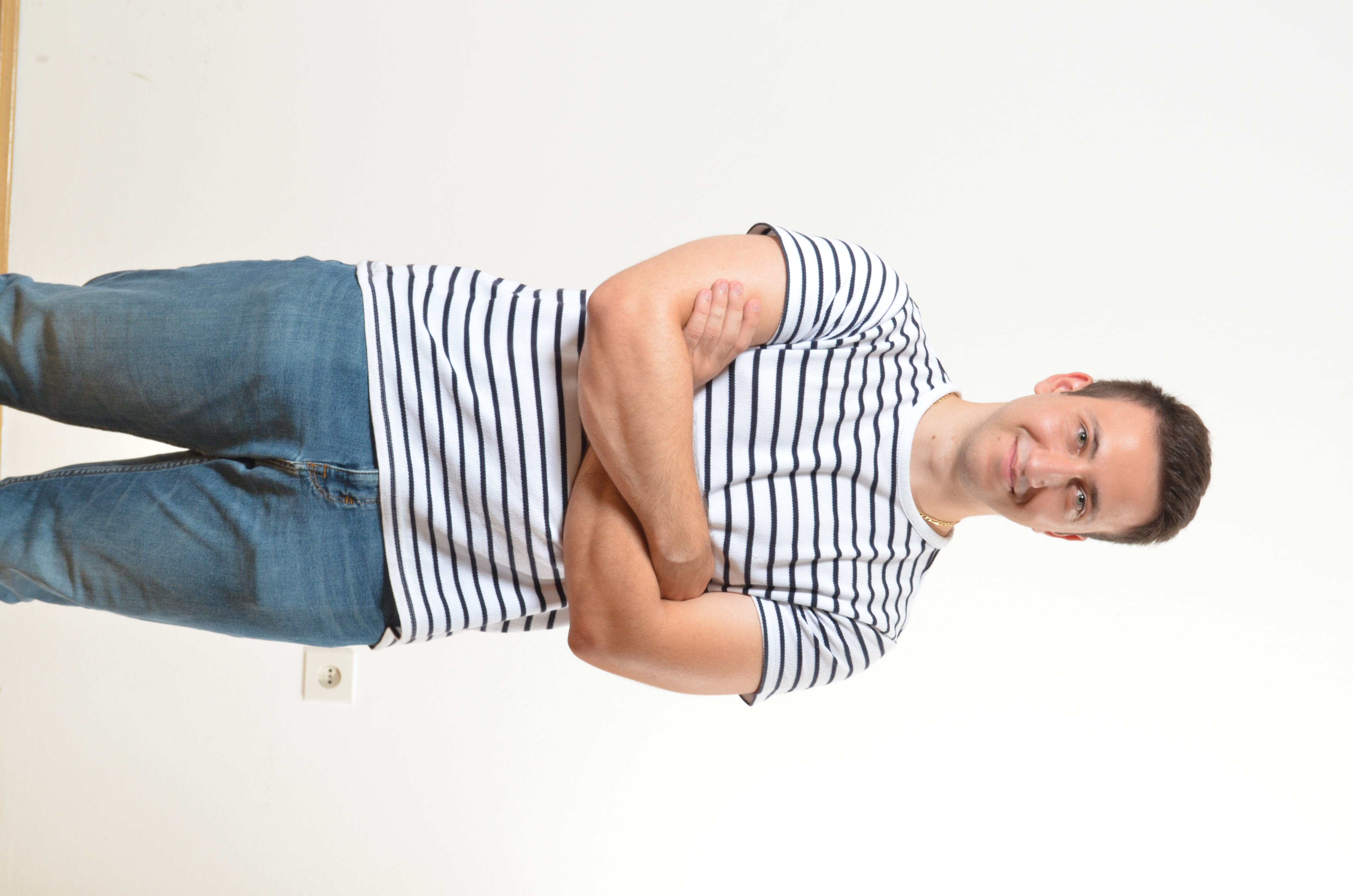
“As for my impact on the others,” said Aleksandar. “I still don’t know, since we still have a long way to go. But, for myself, it has really helped me learn something that I was not familiar with before. Something very important in my life because it has had an impact—especially everything I have learned about sexual and reproductive health and rights."
And there are many surprises along the way, too. Y-PEER educators learn a lot from their trainees, their peers and national and international colleagues.
“Diving into the world of gender equality and the promotion of sexual and reproductive health and rights, I started discovering the cultures and traditions of people from other countries,” said Shukurgeldi in Turkmenistan. “It was surprising to me how the gender equality situation differs - even from city to city within one country. It was also interesting to explore how our history and traditions had an influence on our vision.”
Meanwhile, Gabriela in Moldova feels gratified when trainees eagerly ask when the next training session will be.
“Like any volunteer who wants to reap the rewards of their work, I was pleased when I succeeded in really involving the youth in activities,” said Gabriela. “At the end of one informative lesson, someone approached me to ask when the next meeting was. It was really gratifying to know that the information I had shared with them was useful and that they were keen to learn more.”
During the training sessions and in discussions with friends, Y-PEER educators often learn just as much as the people they train. And, they have some advice about engaging boys and young men on gender equality and sexual and reproductive health and rights.
“I always give the same advice when it comes to this kind of topic,” said Romeo. “Men should break these taboos then everything will be different.”
To learn more about the Y-PEER network and the work on MENENGAGE, visit facebook.com/YPEER.Network

